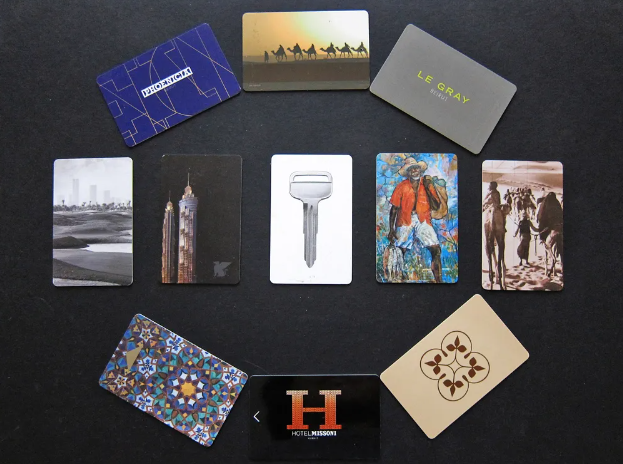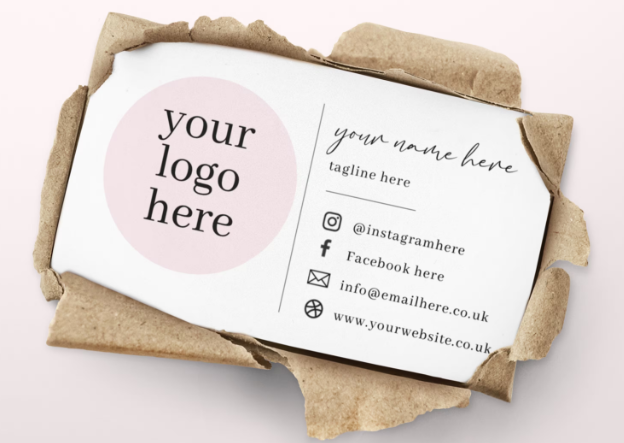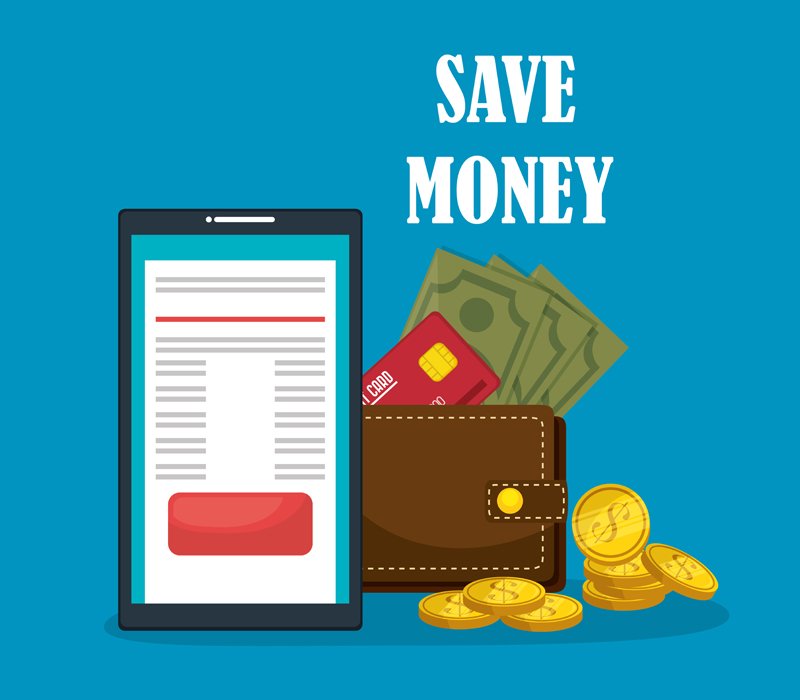Now a days, it is common to see people carrying unnecessary items in their wallets. But did you know that holding on to certain items could actually be harmful to you? Let’s identify 10 key items that should be removed from your wallet right away.
We are here to help you with a wallet cleanse that guarantees security, simplicity, and peace of mind. Get ready to declutter and simplify your life as we share essential tips to turn your wallet into a secure and efficient fortress.
10 Items to Remove from your Wallet Immediately
1) The Social Security Card
The Social Security card is one of the most important documents you will ever possess. It serves as proof of your identity and is required for various purposes, from getting a job to accessing government benefits. However, it is also one of the most dangerous items to carry in your wallet.
Having your Social Security card in your wallet puts you at risk of identity theft. If your wallet is lost or stolen, the thief will have access to your full name, Social Security number, and other personal information that can be used to steal your identity.
It is important to memorize your Social Security number and keep the card in a safe place at home. Only carry it with you when absolutely necessary, such as when starting a new job or applying for government benefits in person.
By eliminating your Social Security card from your wallet, you are taking a proactive step in protecting your identity and reducing the risk of identity theft. Safeguard this important document and only carry it when absolutely needed.
2) Excess Credit Cards

To declutter your wallet and improve your financial health, it’s crucial to take a close look at your credit card collection. Unused cards are not just taking up space in your wallet, but they also pose a security risk. If left untouched for a long time, they could be vulnerable to fraudulent activity.
It’s best to cancel these unused cards to streamline your finances and reduce the risk of identity theft.
Cards that come with high annual fees, overly generous credit limits, or tempting rewards may seem appealing at first, but they can quickly become a financial burden.
It’s essential to assess whether the benefits outweigh the risks associated with these high-risk cards. Consider closing these accounts to avoid falling into debt or overspending beyond your means.
High-risk cards often come with high-interest rates, making it easy to accumulate debt if not managed properly. Additionally, the rewards and perks offered by these cards may encourage impulsive spending, leading to financial instability.
3) Old Receipts
One common item found in many wallets is old receipts. These tiny slips of paper may seem harmless, but they can quickly add up and clutter your wallet. It’s necessary to go through your receipts regularly and dispose of the non-necessary ones to free up space.
One major concern with keeping old receipts in your wallet is the risk of sensitive information falling into the wrong hands.
Receipts often contain personal details such as credit card numbers, which can be used for identity theft. It’s crucial to shred or securely dispose of any receipts that have sensitive information on them.
A good rule of thumb is to never keep receipts for small, everyday purchases in your wallet. Instead, opt to store them digitally or in a designated filing system at home to prevent any potential security breaches.
4) Multiple Identification Copies
While carrying multiple copies of your identification documents may seem like a good idea for backup, it is unnecessary and adds extra bulk to your wallet. Most of the time, you only need one valid form of identification, such as a driver’s license or passport, for everyday activities.
You’ll want to make sure to eliminate any expired identification cards from your wallet. Not only are they no longer valid for use, but they can also add confusion when you are asked to present your ID. You have to regularly check the expiration dates of your identification cards and remove any that are no longer valid.
It’s necessary to keep your wallet streamlined with only the necessary identification documents. This will not only make it easier to find what you need quickly but also reduce the risk of identity theft if your wallet is lost or stolen. Take the time to go through your wallet today and eliminate any unnecessary or expired IDs.
5) Large Amounts of Cash

Cash is convenient, but carrying excess amounts in your wallet can be risky. Not only does it weigh your wallet down, but it also increases the chances of losing a significant sum of money. Consider carrying only the amount you need for the day to avoid the temptation of overspending.
If you have a large amount of cash in your wallet, you are putting yourself at risk of theft. Carrying a substantial sum of money makes you a target for pickpockets and thieves.
It’s safer to use alternative forms of payment like credit or debit cards, or mobile payment apps, which offer more security and fraud protection.
Any loss or theft of a wallet containing a significant amount of cash can be devastating. Not only do you lose the money, but you also have to go through the hassle of cancelling cards and replacing identification documents. Avoid the unnecessary stress by minimizing the cash you carry with you.
Also Read: 15 Most Expensive Restaurants in the World
6) Old Hotel Key Cards

Old hotel key cards doesn’t clutter your wallet but also present a security risk. If they were to end up in the wrong hands, these cards could expose personal information to cybercriminals.
For hotel guests, keeping old key cards as a memento of their stay is a common practice. However, holding onto these cards long after check-out serves no practical purpose and only contributes to wallet bulge.
Hotel key cards are often deactivated shortly after check-out to ensure the security of the guest’s room, So that holding onto them for future use is futile, as they will no longer work to unlock any doors.
7) Numerous Reward Cards
Once again, your wallet is bursting at the seams with a collection of reward cards from every store you’ve ever visited. While these cards promise discounts and perks, the reality is that they often end up cluttering your wallet and making it cumbersome to find the one you actually need.
Little do you realize that most of these reward cards are used infrequently, if at all. They sit in your wallet, taking up valuable space and creating unnecessary clutter. It’s time to declutter and part ways with the cards that you rarely use.
Now, with the rise of digital wallets and apps, there are more convenient alternatives to carrying around a stack of physical reward cards. Many stores now offer digital versions of their rewards programs that can be easily accessed on your smartphone. By using these digital alternatives, you can free up space in your wallet and still enjoy the benefits of your favorite rewards programs.
Cards that offer digital alternatives make it easier to track rewards, receive notifications, and redeem points without the need to carry physical cards. Consider switching to digital versions for a more streamlined and organized approach to managing your rewards programs.
8) Unused Gift Cards
Your unused gift cards may be cluttering up your wallet and taking up unnecessary space. It’s time to take a look at them and see if there are any with forgotten balances that you can consolidate or use up.
You’ll be surprised to know that many retailers now offer digital versions of their gift cards that can be stored on your phone or email. These digital gift cards help declutter your physical space and make them more convenient for easy and quick use, whether you’re shopping online or in-store.
Gift cards are a popular choice for presents, but they often end up unused and forgotten in our wallets. You can minimize clutter in your wallet and maximize the utility of your gift cards by transitioning to digital versions or combining balances.
9) Expired cards
One of the common items that clutter our wallets is outdated insurance cards. Expired cards don’t clutter your wallet but can also cause confusion during emergencies. It’s vital to regularly check and replace expired insurance cards to ensure you have the most up-to-date information on hand.
Cards with up-to-date insurance information are crucial to have in your wallet. In case of an accident or medical emergency, having the most current insurance details readily available can make a significant difference in getting the necessary help promptly.
Make sure to update your insurance cards whenever there is a change in your coverage or provider to stay prepared for any unexpected situations.
Insurance cards should be easily accessible and up-to-date at all times. Consider making digital copies of your insurance cards to have them stored on your phone or in a secure online cloud service. This way, you can have the information handy even if you forget your physical wallet.
Take the time to review and update your insurance information regularly to ensure you are always prepared for any unforeseen circumstances.
10) Business Cards

A common habit among people is to cram their wallets with business cards acquired at events or meetings, believing they may be useful at some point. Yet, the majority of these contacts are superfluous and only add to wallet clutter.
It’s best to be discerning with the business cards you retain, only keeping those you truly intend to engage with down the line.
In this digital age, thanks to contact management systems and smartphone apps, there is no necessity to carry physical business cards anymore.
Simply snap a photo of any business card you receive and input the details into your digital address book for easy access whenever needed, eliminating the need to clutter your wallet.
In addition to reducing the necessity for physical business cards, you may want to explore digital business card applications that facilitate the seamless exchange of contact information without the use of paper.
These applications not only conserve space in your wallet but also streamline networking efforts while promoting eco-friendliness.
Wrap Up,
With this in mind, it is crucial to declutter your wallet by eliminating unnecessary items that may put your personal information at risk.
By removing mentioned items, you can reduce the chances of identity theft and potential financial losses. Keep only crucial items in your wallet to streamline your daily routine and protect your sensitive information.
Bear in mind, a clutter-free wallet is not only more organized but also helps safeguard your personal and financial security.







